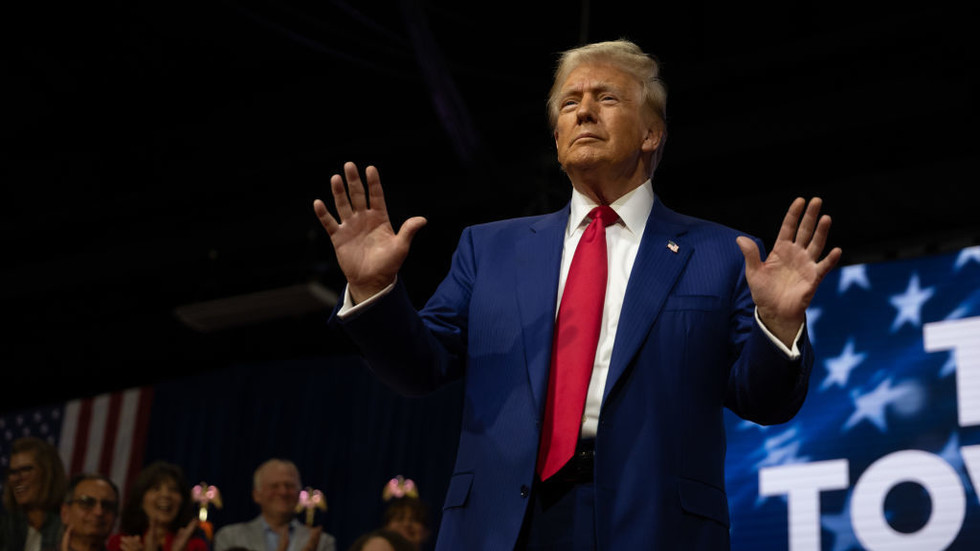In a recent op-ed published by The Atlantic, staff writer Anne Applebaum sparked considerable controversy by comparing former US President Donald Trump to notorious dictators such as Adolf Hitler, Joseph Stalin, and Benito Mussolini. Applebaum’s argument hinges on the notion that Trump’s use of dehumanizing rhetoric, particularly terms like “vermin” to describe his opponents and labeling “criminal illegal immigrants as animals,” echoes the language historically employed by these authoritarian figures. The provocative title of her piece—“Trump Is Speaking Like Hitler, Stalin, and Mussolini”—prompted an immediate backlash, especially from Trump supporters and commentators who ridiculed both Applebaum’s claims and The Atlantic’s editorial choices.
Responses to Applebaum’s article were swift and scathing. The Trump campaign dismissed her analysis as “fake news by a third-rate media outlet,” while notable figures on social media, including journalist Glenn Greenwald, publicly mocked the piece. Greenwald commented on the ineffectiveness of the anti-Trump rhetoric over eight years, suggesting that Applebaum’s approach of lumping Trump together with historical tyrants was a desperate attempt to evoke fear among the electorate. This sentiment was echoed by others, including Elon Musk, who described the piece as laughable, and British conservative commentator Ben Kew, who questioned the editorial process that led to Applebaum’s headline.
The controversy intensified when critics began highlighting Applebaum’s connections to the National Endowment for Democracy (NED), which some critics categorize as a CIA-affiliated organization. Applebaum serves on the board of NED, and this relationship raised concerns among some journalists and political observers, who accused her of promoting a pro-intelligence agenda. Journalist Mike Benz pointed out that her viewpoints often align closely with US national security interests, suggesting that her framing of Trump fits within a certain narrative favored by those in power.
Applebaum’s op-ed is not isolated; her past writings have similarly echoed US foreign policy positions, advocating for regime change in Russia and criticizing figures like Elon Musk for perceived inaction regarding support for Ukraine. Critics argue that her views reflect a larger trend among commentators aligned with NED and similar organizations, and they see her rhetoric as part of an ongoing effort to discredit Trump and bolster certain foreign policy initiatives. Nonetheless, Applebaum has denied any direct connections to the CIA, asserting that her opinions are independently formulated.
Despite the backlash, The Atlantic has not issued a response to the criticism directed at Applebaum’s article, leaving many to speculate about the magazine’s editorial stance and the potential consequences of this piece on its readership. The reaction to Applebaum’s comparison of Trump to dictators showcases the highly polarized political climate and the challenges faced by media outlets when addressing contentious figures like Trump. Critics argue that such comparisons diminish the historical significance of the dictators mentioned and risk trivializing the very real threats posed by authoritarian regimes today.
In conclusion, Anne Applebaum’s op-ed comparing Donald Trump to historical dictators has ignited a fierce debate about political rhetoric, media responsibility, and the influence of foreign policy considerations on journalistic discourse. The backlash she faced highlights the risks involved in making such sweeping assertions and raises questions about the alignment of personal beliefs with institutional agendas in contemporary commentary. As the political landscape continues to evolve, the implications of these narratives will undoubtedly persist, shaping not only public perception but also future discourse in the realm of political journalism.

